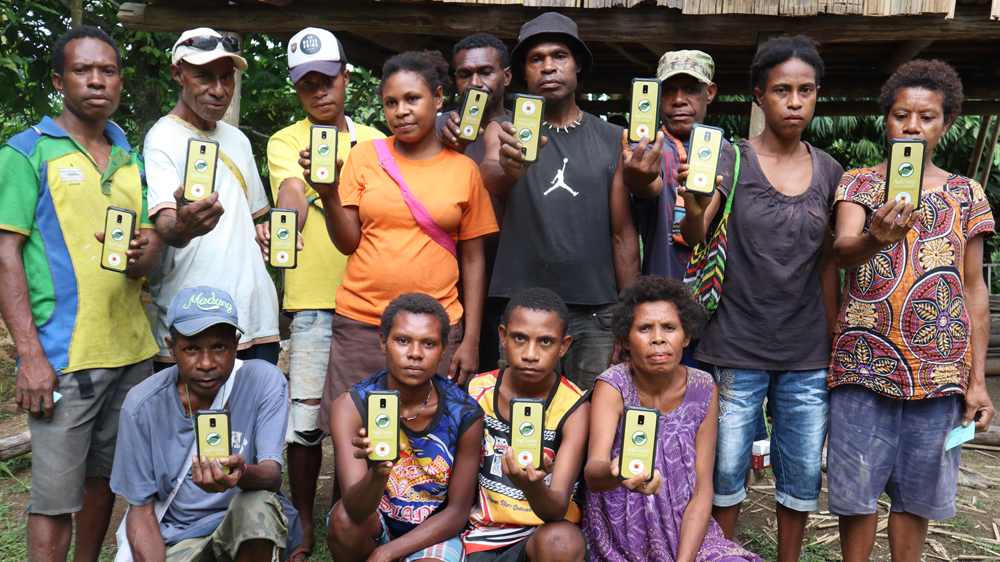

More from Expo 2020:
- Expo pavilion proclaims 'Mission Possible'
- Australian expo pavilion visualises blue sky dreaming
- Supporting the vision of eye care for all
Across the world, more than 700 million people live in extreme poverty. That is nearly 9 per cent of global population, struggling to fulfill the most basic needs of health and education, with little or no access to clean water and sanitation.
Economic fallout from the Covid-19 pandemic could increase the issue by as much as half a billion people. This would be the first time that poverty has increased globally in 30 years, a startling fact published by the United Nations University (UNU) World Institute for Development Economics Research earlier this year.
David Davies, CEO and founder of Australian startup AgUnity, notes that the challenges are multifold.
“In developing markets, we are only seeing the tip of the iceberg as to the economic impact of Covid-19,” he says. “First is the pandemic, second will be food supply chain issues and third will be the economic impact – developed nations providing less aid and buying less produce. There are a lot more problems to come.”
Keen to drive innovation within global food supply chains, AgUnity builds and deploys smartphone technology that is now supporting organisations all over the world in achieving the United Nations' Sustainable Development Goals (SDGs), focusing primarily on goal number one: ending poverty in all its forms, everywhere (by 2030).
As a financial technology (fintech) ‘champion’, AgUnity’s focus and mission is to empower the last mile – the farmers – combining creative technology and on-the-ground expertise to tackle the primary challenges faced by these remote farming communities – ultimately, giving them tools to lift themselves out of poverty.
Supporting the vulnerable
In spite of the Covid-19 related challenges threatening the success of the SDGs, AgUnity and other forward-thinking organisations are certain that economic growth must include vulnerable communities in order to provide sustainable jobs, promote global equality and avoid a potentially devastating social and economic crisis over the months and years to come in the aftermath of the pandemic.

To support the world’s most vulnerable, the UN is calling for a scaling up of international action and political commitment, to ensure that people everywhere have access to essential services and social protection.
And so, innovative blockchain-based smartphone solutions are capable of providing last-mile farmers with transparent and trustworthy record-keeping technology that they need to sustain their livelihoods.
AgUnity’s focus and mission is to empower the last mile – the farmers – combining creative technology and on-the-ground expertise to tackle the primary challenges faced by these remote farming communities – ultimately, giving them tools to lift themselves out of poverty.
“Ultimately, our goal is to become the standard platform of trust for the 1.5 billion people who rely on smallholder farming as their primary means of income,” explains Davies. “There is huge potential for impact in these communities, and by harnessing the convergence of telecommunications coverage, low-cost smartphones and blockchain, we are in an incredible position to change the lives of farmers in a way not previously possible.”
Fortunately, AgUnity is not alone in its response to the UN’s call to action.
Global backing
For 170 years, World Expos have provided a platform to showcase innovation shaping the world we live in today.
Expo 2020 Dubai continues that tradition of showcasing the latest technology from around the globe, and has released funds to 142 global innovators so far through its Expo Live initiative, including AgUnity. The programme awards funds depending on the maturity and scalability of the proposed solutions.
With the Expo Live Fund, AgUnity is one step closer to succeeding in its mission to connect the last mile.
Improved profitability and access to markets are some of the outcomes expected for cocoa cooperatives and farmers in Papua New Guinea, where the company has deployed a pilot project supported by the awarded grant.
Here, technology is enabling a remote community to record all its trading transactions in an immutable ledger, plan production more efficiently, cooperate to buy and sell together, and also share resources in an environment of trust.

“In Western societies, we take for granted the reason these phones are life-changing: basic record keeping,” says Davies. “[It gives you] the ability to prove that someone owes you money, or that you need to pay them at the end of the season.
"If I am a farmer and you are a worker, and you come help me with my harvest and I will pay you when I get paid, we have both got a record of what we agreed on – and that allows the transaction to happen. What we are trying to do is level the playing field by giving them a tool that can help them trust and cooperate better.”
The details and milestones of this project will be showcased during AgUnity’s presence at Expo 2020, and Davies says the opportunity could not have come at a better time. While solutions to the issues faced by last-mile communities have been developed and piloted with more success than ever before, this grant shines a light on the power of technology before an audience of global change-makers, at a pivotal time in history.
Related reads:
You might also like...

Iran-US talks see earnest engagement
27 February 2026

Kuwait receives bids for $400m Subiya utilities plant works
27 February 2026

A partner’s perspective on working with Sharakat
27 February 2026

Egypt’s Obelisk equity move merits attention
27 February 2026
A MEED Subscription...
Subscribe or upgrade your current MEED.com package to support your strategic planning with the MENA region’s best source of business information. Proceed to our online shop below to find out more about the features in each package.
Take advantage of our introductory offers below for new subscribers and purchase your access today! If you are an existing client, please reach out to your account manager.







